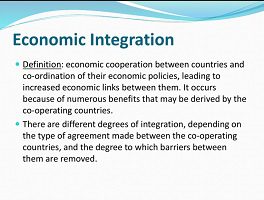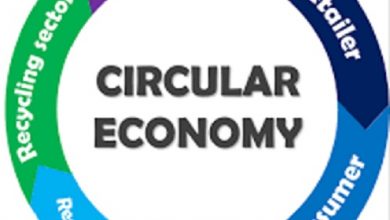What is skill?
In this article we will provide you the Types of professional skills with Essential professional skills.
Before we talk about skill, it is interesting that you understand the meaning of competence. It can be said that competence is knowing how to act correctly. Therefore, when we consider a person competent, it means that we believe that he is capable of taking an adequate attitude on a given issue.
It is for this reason that competence and skill are intertwined, since skill is the ability to perform a task . In other words, it is a person with the ability to act. For example, a person who has the ability to communicate may have the competence to communicate objectively and simply with the other people on their team .
Remember that skills are changeable and workable. Therefore, improving them is one of the ways to stimulate competences.
What are professional skills?
As we’ve discussed before, professional skills are qualities that have become essential to achieve a successful career . Qualifying courses , knowledge of a foreign language and experience in the field are important factors in getting the job you want — but they are not the only ones.
Being able to introduce your skills — creativity, flexibility, attitude, etc. — on the desktop puts you in the spotlight. For this, you can take advantage of skills that are already part of your characteristics and apply them in the corporate world .
The ideal is to analyze which professional skills are fundamental to the area in which you work. If they are not yet part of your personal qualities, it is important to develop them.
What types of professional skills?
Professional skills can be divided into two distinct blocks:
- Techniques: These are the easiest to learn, but they require dedication and time. They can be developed from training courses, such as courses, graduation, preparatory schools, lectures, video classes, etc.;
- Behavioral : can be called soft skills . They are linked to socio-emotional issues and interpersonal relationships. Generally, they are already part of the personal characteristics, but they can be earned. For this, it is essential to work on other characteristics linked to them. For example, for a person to be able to develop the skill of empathy, it is essential to be a good listener and put yourself in the other person’s shoes.
Further types of professional skills
The technical knowledge is essential to the achievement of a job. However, so are the professional and social skills of any employee. Both are relevant to creating a good working environment that increases the productivity of your employees.
While work skills are those that concern the person as a professional and the performance of their functions , social skills have more to do with personality.
Of the various professional skills and abilities, we can highlight some that will be important to include in the curriculum:
- Adaptability;
- Teamwork;
- Manage stress;
- Ability to negotiate;
- Communication capacity;
- Creativity;
- Proactivity;
- Decision-making;
- Rationality.
With regard to social skills , ideally employees should:
- Be empathetic;
- Know hear;
- Have leadership skills;
- Flexibility;
- Optimism;
- Confidence;
- Communication capacity;
- Being able to positively influence.
Essential professional skills
Everyone wants to work in an excellent corporation. Everyone wants to be in the “ Best Companies to Work For ”. What not everyone understands is that people are the ones who make this or that company an organization well-liked by everyone. It is the employees, the human capital, that make a company grow and multiply in its market niche. Therefore, what makes a company better to work for is the person who works for it.
Several people have been talking to me, either after my lectures or when they hire me to give them, and they ask me what skills these professionals should have to make any organization a better company. As I am always observing the environment where I find myself to identify trends and analyze how people behave, I was able to see what the needs of organizations are and which professionals are one step ahead of the rest.
In addition to this unique sparkle in her eyes and awareness of the relevance she has in what she does, I also highlight other skills:
1. Flexibility
It is the attitude to deal with unforeseen events and work around times of crisis. For that, you have to “train” in improvisation. But how? There are some points that help this training: reduce the time spent planning a task; whenever you can, exchange a job that requires meticulousness and slowness for actions; work with teams that contain a diversity of people, which will help you accept that there are no absolutes; make it a habit to ask your entire team for their opinion and observe the various points of view to solve a given problem; mark on paper the reasons that led you to determine a certain decision and whether or not you maintain them when the situation changes course.
2. Self-confidence and self-knowledge
These skills are important for you to take risks and have security, they are great for the entrepreneurial spirit, aiming to be a leader and entrepreneur. To do this, get out of your comfort zone and start having a broader view of how far you can go; mark your goals on paper, circle those you have already achieved and always set new ones; flee from overly protective people and superiors who do not delegate tasks, limiting your capacity; to improve your self-knowledge, try to see how people around you see you or seek out an expert on the subject, such as a therapist, to improve your personal abilities.
3. Initiative
It serves to make good ideas into practice. It’s acting with speed and innovation. To leverage this skill: offer help to resolve difficult and unpredictable situations; if you tend to avoid risks, start to consider mistakes made in the past as new opportunities to learn; develop activities that are linked to the initiative such as delegating tasks, cost-benefit analysis; clarify your priorities to put them into practice.
4. Competitiveness
Having clear goals, not just reaching the common goal. Worrying about doing an excellent job, going beyond the goals set by your superiors, having a tendency to innovate and enjoy things you couldn’t do before. All these factors refer to a healthy competitiveness, a step towards success. This skill is closely linked to your personal emotions and motivations. Asking about your goals and objectives, about what you really like to do and avoiding work routines, always innovating, is a way to enhance this skill.
5. Customer view
Discovering the other person’s hidden desires, investing time in the needs of other people and customers, in short, finding what satisfies the customer. To enhance this ability: control your emotions and have the flexibility to relate to different types of people; when you have to deal with customers who are not very clear about what they want, learn to question them, to detect their real needs and desires; try to always remain available to the customer; be nice; Develop an order history for all your customers so that when they contact you, you can streamline communication.
6. Interpersonal understanding and empathy
Be sensitive to deal with everyone, satisfy others and become the leader of the group thanks to your empathy. This is the key skill, especially for those who deal directly with customer service and professionals in the area of service provision, as it is up to these professionals to identify with empathy what their customers really need. In fact, empathy develops with practice, first consciously (taking notes on what the other person says, listening to questions and needs) and then making it a daily habit.
7. Leadership skills
It is the natural ability of others to follow you. If you find it easy to motivate your co-workers and they always ask for your opinion to make important decisions, you already have this ability inside of you. Making superiors follow you too is a good proposition. To further enhance this ability, take some time to listen to other team members, learn about the problems they are experiencing, and make it clear that they can trust you to achieve their goals; try to earn the respect of others through your attitudes, working consistently and always setting a good example.
8. Persuasion
Influencing and persuading others to reach the proposed goals is a very powerful skill. Some have an inexplicable magnetism to other team members so that they do their best. But, in order to gain more persuasiveness, there are some tips: improve your communication skills and the way you put the planning of goals on paper; be consistent in everything you say or do, as it is the security of your credibility and, thus, you can make others follow you. Just don’t confuse this powerful ability to persuade with manipulating people, because then that ability doesn’t bring professional benefits to you.
9. Teamwork
It feels good to be collaborating with everyone, in which they also tell you what to do; listen to and respect the opinions of others other than your own; prefer to work together to achieve a common goal than to work alone to aim for individual goals. These are attitudes of those who have this brilliant ability to work in a team. Learn to accept criticism; learn to delegate tasks; asking others for opinions and eliminating formal barriers in routine situations are ways for you to further enhance this skill.
10. Business vision
For those who are concerned about being always up to date; they have their own opinion of where their organization is and where it is headed, and they are able to foresee the consequences of their decisions before they become a problem. These are the characteristics of those who already have this ability, to sharpen their nose for a whole. To enhance or start training it: develop your side and your intellectual curiosity, getting used to reading books, magazines and periodical newspapers; devote a portion of your time to planning, analyzing and setting priorities in your area of expertise; to predict possible consequences in the future, start analyzing the market reality in the long term, contrasting data from the past with data from the present.




